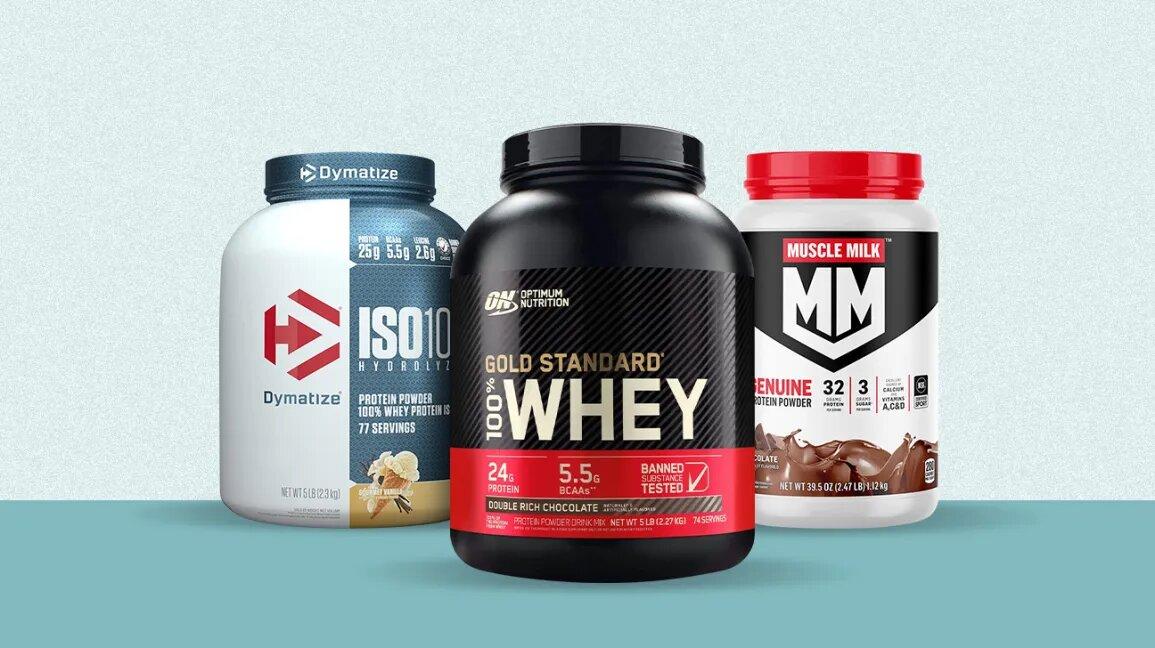Protein powder has become a staple in the diets of fitness enthusiasts, athletes, and health-conscious individuals. Whether you're looking to build muscle, lose weight, or simply increase your protein intake, finding the best protein powder for your needs can be a daunting task. With a multitude of options available on the market, each claiming to be the best, it's crucial to understand the key factors that can help you make an informed choice. In this ultimate guide, we'll walk you through the important considerations when selecting the best protein powder for you.
Types of Protein Powders
There are several types of protein powders available, each derived from different sources. Understanding the differences between them is the first step in choosing the best one for your goals.
1. Whey Protein
Whey protein is one of the most popular and widely used protein supplements. It is a complete protein, meaning it contains all essential amino acids required by the body. Whey protein is fast-absorbing, making it an excellent choice for post-workout recovery. It comes in three primary forms: whey protein concentrate, whey protein isolate, and whey protein hydrolysate. Whey protein isolate has a higher protein content with minimal fat and lactose, making it suitable for those with lactose intolerance.
Best for: Rapid muscle recovery and growth, post-workout supplementation.
2. Casein Protein
Casein is another milk-derived protein, but it differs from whey in terms of digestion. Casein is a slow-digesting protein, providing a sustained release of amino acids into the bloodstream. This makes it an ideal choice for a nighttime protein source or for extended periods between meals.
Best for: Prolonged amino acid release, maintaining muscle mass during fasting (such as overnight).
3. Plant-Based Proteins
Plant-based protein powders, often derived from sources like pea, rice, hemp, soy, and more, have gained popularity among vegans and individuals with dairy allergies. These proteins are not always complete proteins on their own, but they can be combined to provide a complete amino acid profile. Plant-based proteins are often rich in fiber and nutrients, making them a healthy choice.
Best for: Vegans, vegetarians, and those with dairy allergies or sensitivities.
4. Egg White Protein
Egg white protein is a high-quality protein source, rich in essential amino acids. It's an excellent alternative for those looking to avoid dairy or soy-based proteins. Egg white protein is highly digestible and can be beneficial for muscle recovery and growth.
Best for: Dairy-free and soy-free protein supplementation.
5. Collagen Protein
Collagen protein has gained popularity for its potential benefits for skin, hair, nails, and joint health. It is not a complete protein as it lacks certain essential amino acids, but it can still be a valuable addition to your diet.
Best for: Improving skin and joint health, supporting hair and nail growth.
Consider Your Fitness Goals
The type of protein powder you choose should align with your fitness and health objectives. Here's how to match your goals with the right protein powder:
1. Muscle Building
If your primary goal is to build muscle, whey protein is often the top choice due to its rapid absorption and high essential amino acid content. Look for a whey protein isolate or a blend that includes whey isolate for maximum protein content with minimal carbs and fats.
2. Weight Loss
When trying to lose weight, a protein powder with minimal carbohydrates and fats is preferred. A protein powder that helps control appetite and keeps you feeling full can be beneficial. Consider a protein powder with added fiber, as this can aid in satiety.
3. Vegan or Dairy-Free
For individuals following a vegan or dairy-free diet, plant-based protein powders, such as pea, rice, or hemp protein, are excellent options. Make sure to choose a blend that provides a complete amino acid profile.
4. General Wellness
If your goal is simply to increase your protein intake for overall health and wellness, you have more flexibility in your choice. Consider factors like taste, texture, and additional ingredients that align with your dietary preferences.
Additional Factors to Consider
Beyond the type of protein and your fitness goals, there are several other factors to consider when selecting the best protein powder for you:
1. Flavor and Taste
Protein powders come in a wide range of flavors, from chocolate and vanilla to exotic options like cookies and cream. Taste is subjective, so choose a flavor that you enjoy and will look forward to consuming.
2. Ingredient List
Check the ingredient list for additives, artificial sweeteners, and fillers. Opt for products with minimal and easily recognizable ingredients.
3. Price and Budget
Protein powders vary widely in price. Consider your budget and compare the cost per serving when making your decision.
4. Brand Reputation
Research the reputation of the brand. Look for companies that have a history of quality and transparency in their products.
5. Allergens and Sensitivities
If you have food allergies or sensitivities, carefully read labels to ensure the product is safe for you to consume.
Conclusion
Choosing the best protein powder for your needs is a crucial step in optimizing your fitness and nutrition regimen. Consider your fitness goals, dietary preferences, and individual factors when making your decision. Remember that the best protein powder is one that aligns with your objectives, tastes good, and fits within your budget. By following this ultimate guide, you can confidently select the protein powder that will help you achieve your health and fitness goals effectively.

